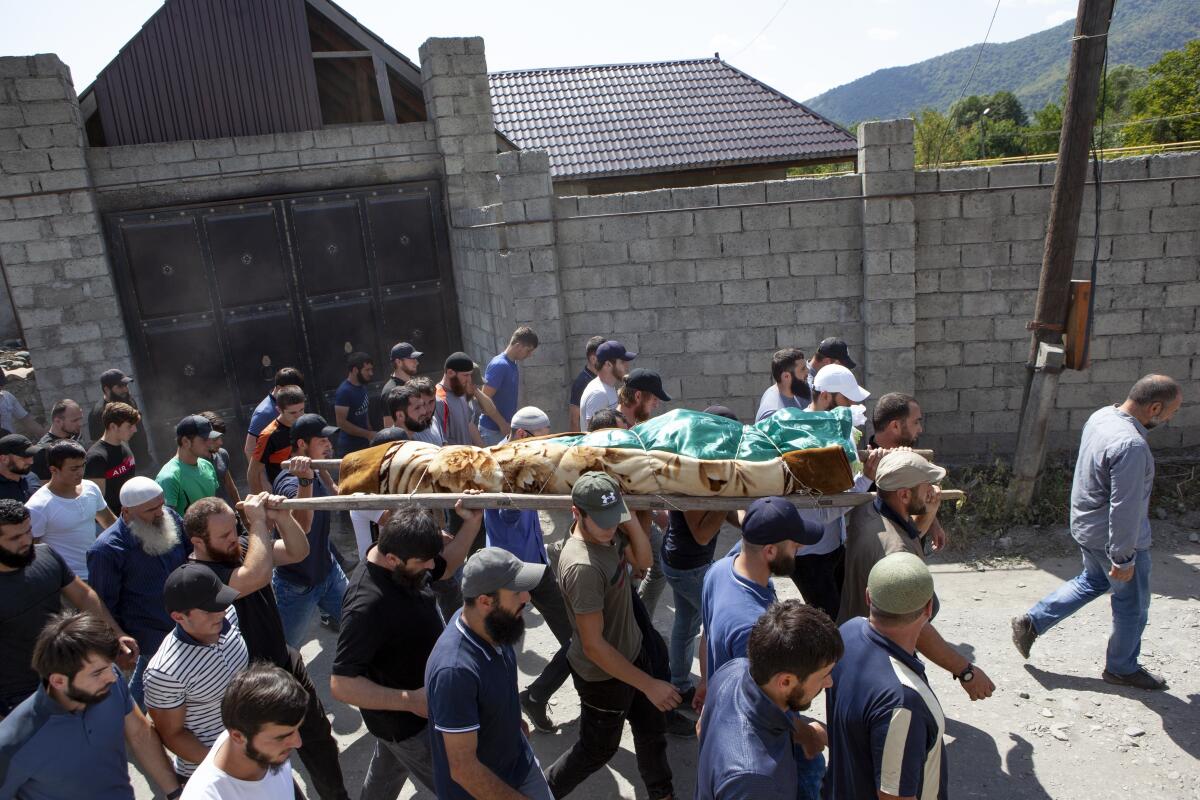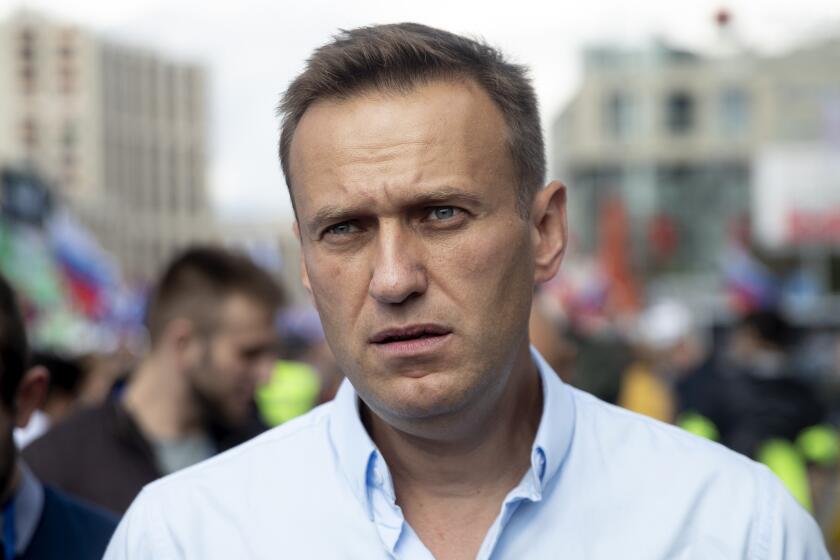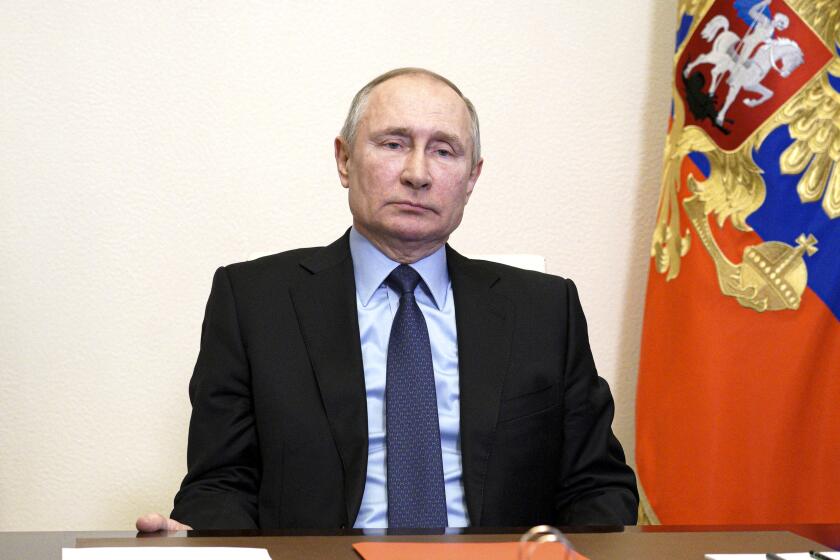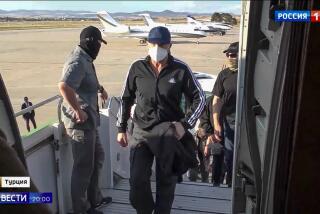German court convicts Russian man of a slaying it says was ordered by Moscow

- Share via
BERLIN — A Berlin court convicted a Russian man Wednesday of a killing in Germany’s capital two years ago and concluded that Russian authorities ordered the slaying.
The 2019 killing of Zelimkhan “Tornike” Khangoshvili, 40, a Georgian citizen of Chechen ethnicity, sparked outrage in Germany and inflamed diplomatic tensions between Russia and Germany. It prompted the German government to expel two Russian diplomats, which triggered a reciprocal response by Moscow.
The Berlin regional court said in its verdict that Russian security services provided 56-year-old Vadim Krasikov with a false identity, a fake passport and the resources to carry out the August 2019 hit. The Kremlin has called the allegations of Russian involvement in the Berlin killing “absolutely groundless.”
The court found Krasikov guilty of murder Wednesday and sentenced him to life imprisonment. Defense lawyers had asked the court to acquit their client on the grounds of mistaken identity.
Judges said Krasikov bore “particularly grave responsibility” for the slaying, meaning that he will not be entitled to automatic parole after 15 years, which is customary in Germany.
The outcome of the trial could stoke fresh tensions between Germany and Russia at a time when the new government of Chancellor Olaf Scholz is trying to find its foreign-policy footing with Moscow.
Past example shows that falling afoul of Putin can portend poison peril
The victim’s relatives, who under German law were allowed to take part in the trial as co-plaintiffs, accused Russia last week of trying to “send a message” to its political enemies by killing Khangoshvili, who had claimed asylum in Germany three years earlier.
Prosecutors alleged that Krasikov traveled to Berlin under the alias Vadim Sokolov in August 2019 at the behest of the Russian government for a “state-contracted killing,” shooting the victim from behind with a silencer-fitted handgun near the Kleiner Tiergarten park.
As Khangoshvili lay on the ground, Krasikov allegedly fired two more bullets into his head, killing him.
Witnesses saw the attacker throw a bike, a gun and a wig into the Spree River near the scene and alerted police, who quickly arrested him before he could make off on an electric scooter parked in a doorway.
Vladimir Putin — leader of a country that has invaded its neighbors, disrupted elections and jailed dissidents — doesn’t like that Biden called him a ‘killer.’
Russian President Vladimir Putin’s spokesman, Dmitry Peskov, had called the allegations of Russian involvement in the killing “absolutely groundless.”
Putin said after a meeting with then-Chancellor Angela Merkel months after the slaying that Khangoshvili, the victim, had been a “bandit” and a “murderer” who allegedly killed scores of people during fighting in the Caucasus.
German-Russian relations took a further hit last year after Merkel intervened to fly poisoned Russian opposition leader Alexei Navalny to Berlin for medical treatment. Navalny says he was poisoned by Russian agents, which Moscow denies. After returning to his home country, Navalny was sentenced to 2½ years in prison for violating the terms of his probation while convalescing in Germany.
Germany’s new foreign minister, Annalena Baerbock, has called for a tougher stance on Russia, especially over its military buildup near Ukraine. But Scholz has called for a new “Ostpolitik” — or policy toward the east — of the kind that his Social Democratic predecessor as chancellor, Willy Brandt, pursued during the Cold War.
More to Read
Sign up for Essential California
The most important California stories and recommendations in your inbox every morning.
You may occasionally receive promotional content from the Los Angeles Times.












